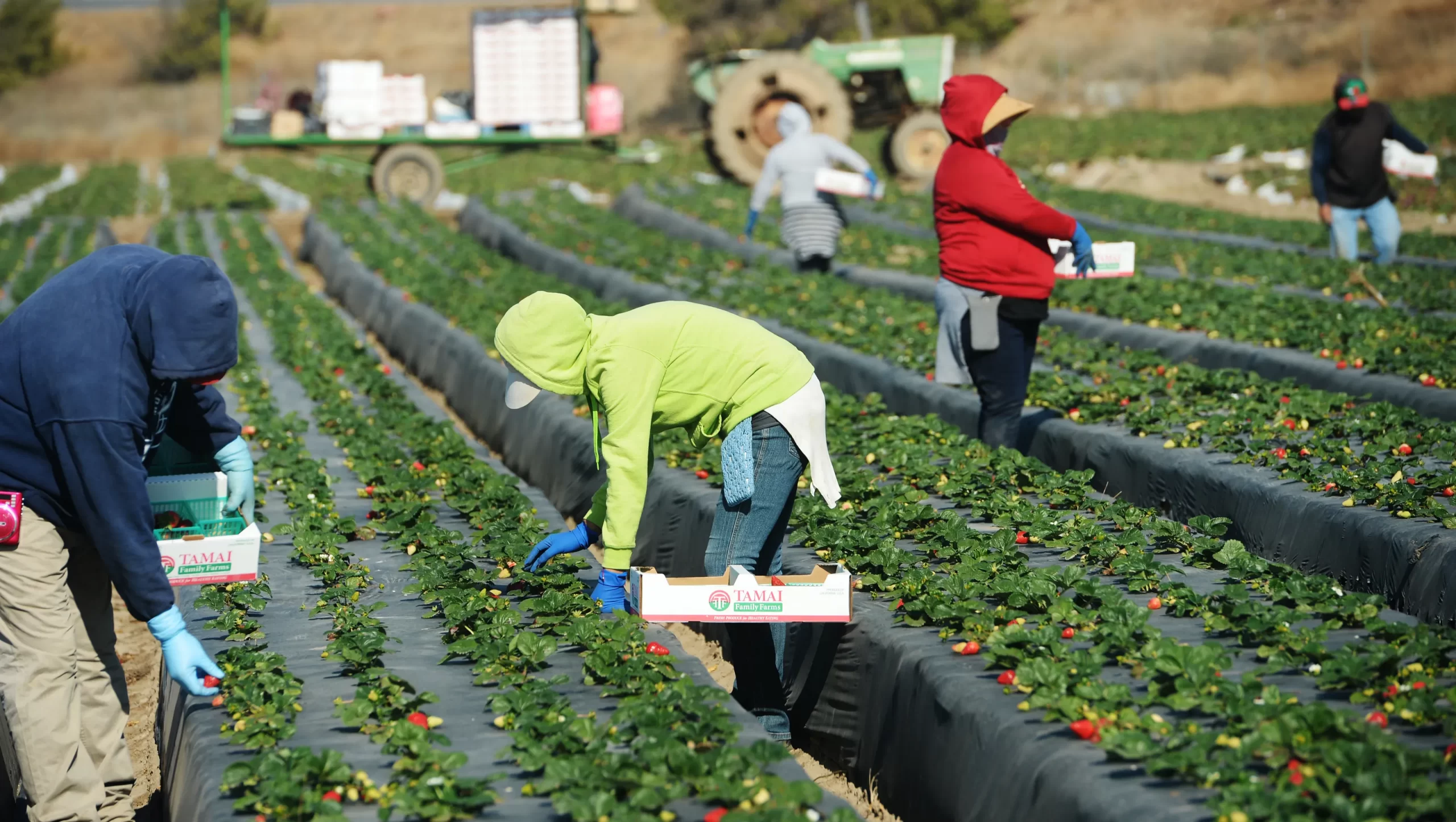The Farm Workforce Modernization Act: A Compromise Path Forward

More than three decades have gone by since Congress last passed major legislation creating a pathway to citizenship for this nation’s undocumented immigrants. Year after year, political gridlock has prevented the adoption of common-sense reforms that would benefit immigrants and, in turn, the broader American economy. This year, the Senate has the opportunity to break through the impass and provide relief for hundreds of thousands of undocumented farmworkers and their families by voting to pass the bipartisan Farm Workforce Modernization Act (FWMA), but they must act soon.
Last March, the Farm Workforce Modernization Act (H.R.1603) passed in the House of Representatives by a vote of 247-174, with 30 Republican members voting in favor. Shortly after the bill passed in the House, Senators Michael Bennet (D-CO) and Mike Crapo (R-ID) announced that they would introduce a companion bill in the Senate. After attempts to pass separate immigration reform provisions through the reconciliation process failed last fall, it is clear that Senate passage of the FWMA will require the votes of 60 Senators, including at least 10 Republicans. Senators Bennet and Crapo continue to work toward introduction of a companion bill that secures that support, but they must do so quickly, before the Congressional term ends in January 2023.
The House-passed FWMA is the result of a difficult negotiation process that lasted nearly a year. Congressional Republicans have long opposed any bill that would provide a freestanding path to citizenship for undocumented farmworkers. To achieve a bill that could garner the bipartisan support necessary to pass the Senate, the FWMA needed to include concessions from both sides. The resulting compromise bill did just that, and it has the support of a broad coalition of agricultural employers and over 60 labor unions and immigrant rights organizations, including Farmworker Justice, the United Farm Workers (UFW), UFW Foundation, Farm Labor Organizing Committee (FLOC), and Pineros y Campesinos Unidos del Noroeste (PCUN).
Today, an estimated 44% of America’s 2.4 million farmworkers are undocumented. This situation is untenable for both workers and employers, and it results in hundreds of thousands of workers who go to the fields each day uncertain if they will be able to return home to their families. The lack of immigration status is one of the root causes of exploitation, dangerous working conditions, and low pay in agriculture. It enables employers to hold the threat of deportation over workers, making many unwilling to raise valid complaints or challenge violations of their rights.
The vast majority of immigrant farmworkers—85%—have been living in the U.S. for more than a decade. They are essential participants in our economy and our communities. They deserve legal status and a voice in the workplace. Farmworker Justice urges the Senate to give workers a path to that status by passing the compromise Farm Workforce Modernization Act and sending it to President Biden’s desk for signature this fall.
For more information on the Farm Workforce Modernization Act, see FJ’s detailed H.R.1603 Fact Sheet here.
Categories
- Letters to the Editor and OpEds19
- Farmworker Justice Earned Media Reports0
- Farmworker Justice4
- 2024 Press Releases4
- 2023 Press Releases1
- 2022 Press Releases9
- 2021 Press Releases31
- 2020 Press Releases26
- 2019 Press Releases19
- 2018 Press Releases11
- 2017 Press Releases25
- 2016 Press Releases7
- 2015 Press Releases10
- 2014 Press Releases21
- 2013 Press Releases25
- 2012 Press Releases0

